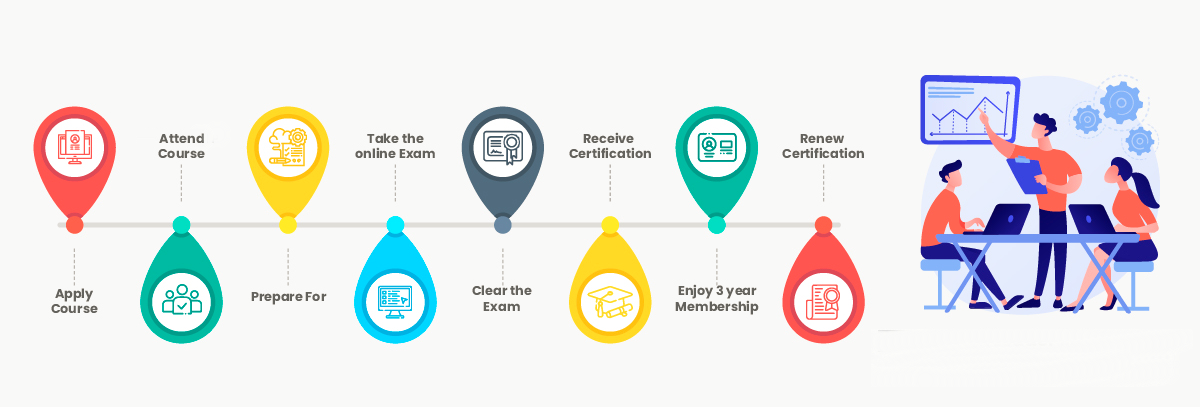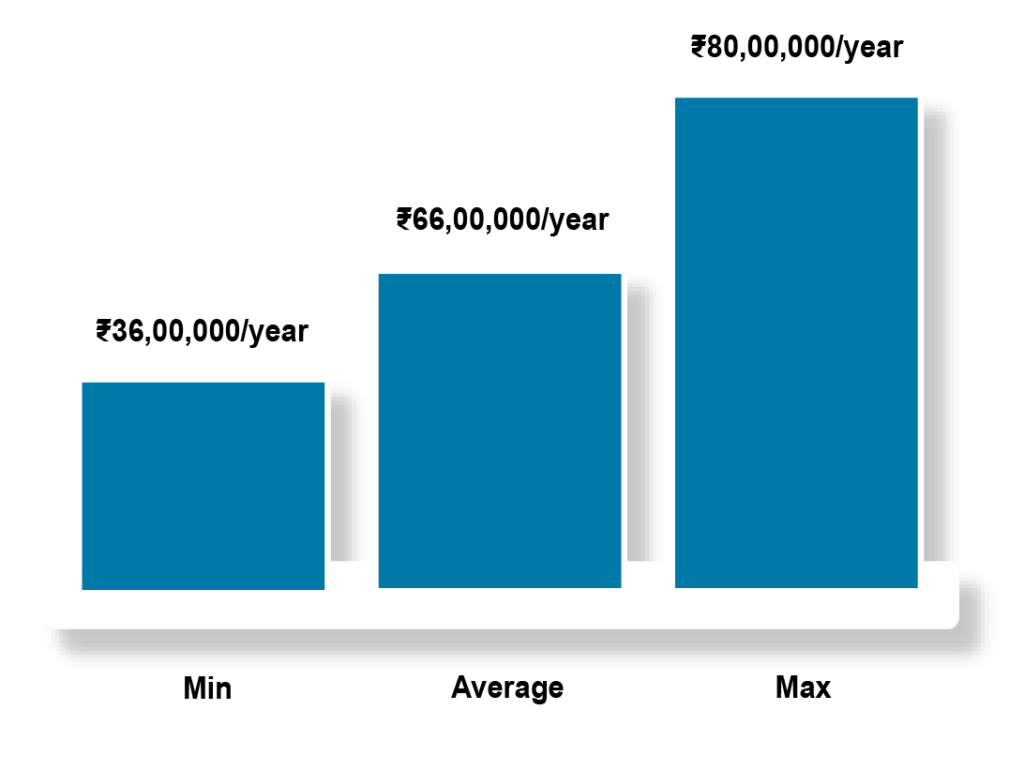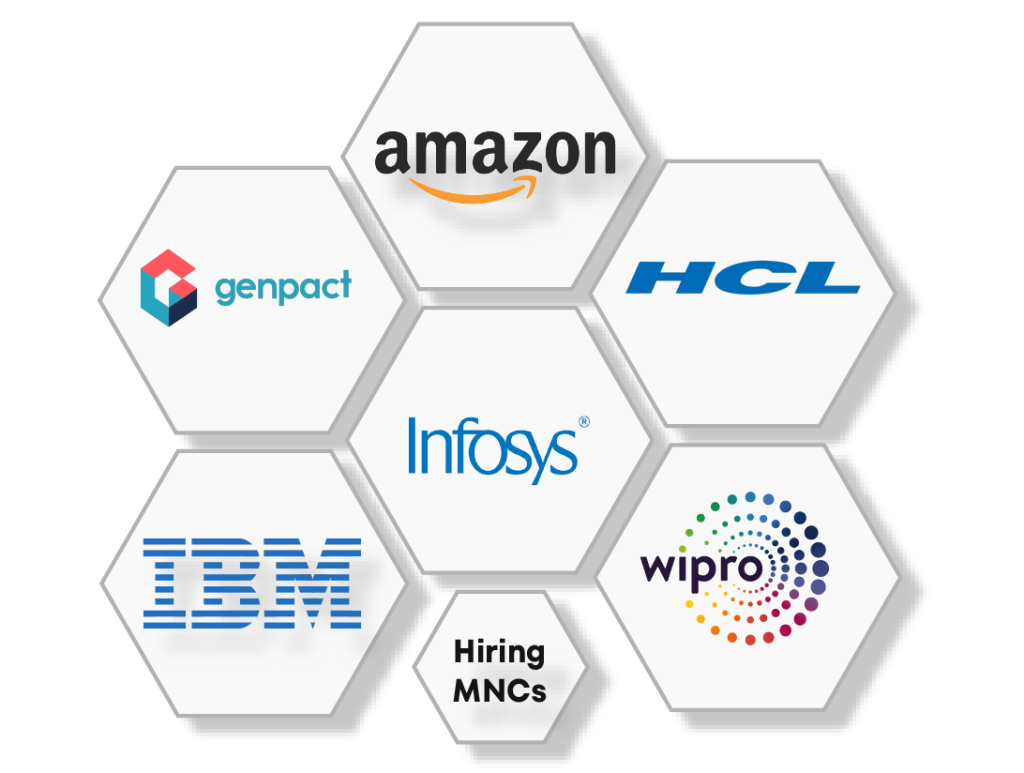
Sambodhi and Education Nest offers a certificate course for SPSS programming that provides participants with the necessary skills to perform data analytics using SPSS. Education Nest’s SPSS training program equips participants with in-depth knowledge of essential concepts related to data analysis and statistics using SPSS. The training offers practical exposure to real-world scenarios, which enables learners to gain hands-on experience and insights into data analysis. Upon completing the program, learners will have gained expertise in SPSS programming and data analysis and prepared to clear the SPSS certification exam on their first attempt.
Application Deadline: May 31st, 2023
Upskill for Your Dream Job
Sambodhi and Education Nest provides a comprehensive SPSS programming certificate course that equips participants with the essential skills to perform data analytics. The course offers in-depth knowledge of data analysis and statistics using SPSS, along with practical exposure to real-world scenarios. Through this training, learners can gain hands-on experience and insights into data analysis. Upon completion of the program, learners will be well-versed in SPSS programming and data analysis, making them ready to clear the SPSS certification exam on their first attempt.



Instructor-led Data Science Using SPSS live online Training Schedule
May 15th – Weekend
July 1st – Weekend
Why enroll for Data Science Using SPSS Certificate Training Course?

The Bureau of Labor Statistics (BLS) projects an 11% growth in employment for computer and information research scientists, including SPSS programmers, from 2021 to 2031.

SPSS programmers are highly sought after in industries such as healthcare, finance, market research, social sciences, and government that rely on statistical software.

According to Payscale, the average salary for an SPSS programmer in the United States is around $64,000 per year. The salary range can be between $44,000 and $97,000 per year.

Data Science Using SPSS Training Course Benefits
SPSS is a versatile software program that can be used for analyzing both qualitative and quantitative data. While it’s true that the 85% of research scholars carry quantitative data for analysis, SPSS provides equal importance to both types of data. This means that SPSS is just as useful for analyzing qualitative data as it is for analyzing quantitative data. Although there are many other software programs available for analyzing quantitative data, SPSS remains a popular choice due to its user-friendly interface and ease of use. Education Nest offers a comprehensive SPSS Programming training course, designed to teach learners the foundational concepts from scratch and equip them with the tools necessary to launch their career in this field.

Annual Salary

Hiring Companies
Want to become a SPSS
Professional?
Why Data Science Using SPSS Certificate Training Course from Education Nest






Data Science Using SPSS Skills Covered
Data Science Using SPSS Training Course Syllabus
Data Science Using SPSS Training Projects

Data Science using SPSS finds significant application in the IT industry. With a vast amount of data being generated daily, IT firms require professionals with SPSS skills to extract valuable insights from this data. SPSS is used in IT for various purposes such as data cleansing, data mining, predictive modeling, and statistical analysis. One of the significant projects in IT where SPSS is used is in the identification of potential cybersecurity threats. Using SPSS, IT professionals can identify patterns and anomalies in the system that could indicate a possible security breach. Additionally, SPSS can be used to forecast network traffic and optimize network performance, ensuring a smooth flow of data within the organization.

In the retail industry, data analysis is crucial for making informed decisions related to inventory management, sales forecasting, and customer behavior. With the help of SPSS, retail businesses can leverage data to gain insights into customer preferences, purchase patterns, and trends. By analyzing this data, retailers can optimize their marketing strategies, improve customer engagement, and increase sales. SPSS can also be used to analyze supply chain data, helping retailers to identify and resolve bottlenecks in their inventory management and streamline their operations. Overall, the use of SPSS in the retail industry can help businesses make data-driven decisions and gain a competitive edge in the market.
Data Science Using SPSS Training Description
Data Science Using SPSS training course offered by Sambodhi and Education Nest is designed to equip learners with the essential skills and knowledge to analyze data using SPSS software. SPSS is a widely-used statistical analysis software tool that can help organizations to make informed decisions by processing and analyzing data. This course covers topics such as data cleaning and preparation, exploratory data analysis, hypothesis testing, regression analysis, and more. Learners will gain hands-on experience with SPSS and learn how to create and interpret statistical models. This course is ideal for anyone who wants to start a career in data analysis or wants to enhance their data analysis skills.
The objectives of the Data Science Using SPSS course are:
Here are some reasons why learning the Data Science Using SPSS course can be beneficial:
The Data Science Using SPSS course is suitable for individuals who want to enhance their knowledge and skills in data analysis using SPSS. This course is ideal for:
The pre-requisites for the Data Science with Python course may vary depending on the specific program and level of difficulty, but generally include:
Other Courses offered by Sambodhi and Education Nest for Data Science is:
Each of this software has its own unique features and strengths, and the choice of software depends on the specific needs and requirements of the project.
Data Science Using SPSS training course offered by Sambodhi and Education Nest is designed to equip learners with the essential skills and knowledge to analyze data using SPSS software. SPSS is a widely-used statistical analysis software tool that can help organizations to make informed decisions by processing and analyzing data. This course covers topics such as data cleaning and preparation, exploratory data analysis, hypothesis testing, regression analysis, and more. Learners will gain hands-on experience with SPSS and learn how to create and interpret statistical models. This course is ideal for anyone who wants to start a career in data analysis or wants to enhance their data analysis skills.
The objectives of the Data Science Using SPSS course are:
Here are some reasons why learning the Data Science Using SPSS course can be beneficial:
The Data Science Using SPSS course is suitable for individuals who want to enhance their knowledge and skills in data analysis using SPSS. This course is ideal for:
The pre-requisites for the Data Science with Python course may vary depending on the specific program and level of difficulty, but generally include:
Other Courses offered by Sambodhi and Education Nest for Data Science is:
Each of this software has its own unique features and strengths, and the choice of software depends on the specific needs and requirements of the project.
Data Science Using SPSS Certificate Training Course reviews
Read learner testimonials
Rajeev Jain
Thank you Sambodhi and Education Nest for the quick response and for resolving my query. I appreciate your support during the Data Science Using SPSS course.
Tara Shah
Education Nest provides the best software training I have seen in my career. The Data Using SPSS course has been incredibly insightful and valuable. Highly recommend!"
Nitya Nair
Amazing trainer! Made learning SPSS fun and easy. Highly recommended for anyone looking to learn data analysis using SPSS. Thanks, Sambodhi and Education Nest!
Hear from our learners
Lorem ipsum dolor sit amet, consectetur adipiscing elit. Ut elit tellus, luctus nec ullamcorper mattis, pulvinar dapibus leo.
Lorem ipsum dolor sit amet, consectetur adipiscing elit. Ut elit tellus, luctus nec ullamcorper mattis, pulvinar dapibus leo.
Lorem ipsum dolor sit amet, consectetur adipiscing elit. Ut elit tellus, luctus nec ullamcorper mattis, pulvinar dapibus leo.
Like what you hear from our learners?
Creating Epic Presentations: Communicating Powerful Ideas reviews
Data Science Using SPSS Training FAQs
If you miss an online Data Science Using SPSS class, it’s important to reach out to the instructor or the support team of the online training platform you are using. They may be able to provide you with a recording or transcript of the missed class, so that you can catch up on what you missed. Alternatively, some platforms offer on-demand access to class materials, so you can go back and review the content on your own time. It’s always a good idea to try and make up the missed material as soon as possible, so that you don’t fall behind in your learning.
If you have queries after completing an online Data Science Using SPSS course, Education Nest training platforms offer some form of post-course support. This may include access to a dedicated support team, a community forum where you can ask questions and connect with other learners, or even one-on-one sessions with an instructor or coach. If you have specific questions or concerns related to the course material, you can reach out to the instructor directly or use the support channels provided by the platform. It’s always a good idea to clarify any doubts or questions you may have, as this will help to solidify your understanding of the material and ensure that you can apply what you’ve learned in a real-world context.
Data Science Using SPSS is a course that teaches participants how to perform data analysis using IBM SPSS software. SPSS stands for Statistical Package for the Social Sciences and is a widely used tool for data analysis, statistical modeling, and predictive analytics. The course covers the basic and advanced features of SPSS, including data management, hypothesis testing, regression analysis, and data visualization. The aim of the course is to provide participants with a comprehensive understanding of SPSS and its applications in data science.
Once you enrol in a Data Science Using SPSS Training course, you will typically have access to the course material for as long as the course remains available on the platform. This means that you can revisit the material at any time, even after you have completed the course, and continue to learn and improve your skills.
The benefit of lifetime access to the learning material is that it allows you to learn at your own pace and on your own schedule. You can review the content as many times as you need to fully understand the concepts and techniques covered in the course. Additionally, if you encounter a new challenge in your work or personal life, you can go back to the course material to find solutions and strategies to help you overcome the challenge.
Having access to course material for a lifetime is a valuable benefit, as it allows you to continue to improve your skills and knowledge long after you have completed the course. So, if you are interested in improving your SPSS skills and want the flexibility to learn at your own pace, consider enrolling in an Data Science Using SPSS Training course that offers lifetime access to the learning material.
Once you enrol in a Data Science With R Programming Training course, you will typically have access to the course material for as long as the course remains available on the platform. This means that you can revisit the material at any time, even after you have completed the course, and continue to learn and improve your skills.
The benefit of lifetime access to the learning material is that it allows you to learn at your own pace and on your own schedule. You can review the content as many times as you need to fully understand the concepts and techniques covered in the course. Additionally, if you encounter a new challenge in your work or personal life, you can go back to the course material to find solutions and strategies to help you overcome the challenge.
Having access to course material for a lifetime is a valuable benefit, as it allows you to continue to improve your skills and knowledge long after you have completed the course. So, if you are interested in improving your R Programming skills and want the flexibility to learn at your own pace, consider enrolling in an Data Science With R Programming Training course that offers lifetime access to the learning material.
If you miss an online Data Science Using SPSS class, it’s important to reach out to the instructor or the support team of the online training platform you are using. They may be able to provide you with a recording or transcript of the missed class, so that you can catch up on what you missed. Alternatively, some platforms offer on-demand access to class materials, so you can go back and review the content on your own time. It’s always a good idea to try and make up the missed material as soon as possible, so that you don’t fall behind in your learning.
If you have queries after completing an online Data Science Using SPSS course, Education Nest training platforms offer some form of post-course support. This may include access to a dedicated support team, a community forum where you can ask questions and connect with other learners, or even one-on-one sessions with an instructor or coach. If you have specific questions or concerns related to the course material, you can reach out to the instructor directly or use the support channels provided by the platform. It’s always a good idea to clarify any doubts or questions you may have, as this will help to solidify your understanding of the material and ensure that you can apply what you’ve learned in a real-world context.
Data Science Using SPSS is a course that teaches participants how to perform data analysis using IBM SPSS software. SPSS stands for Statistical Package for the Social Sciences and is a widely used tool for data analysis, statistical modeling, and predictive analytics. The course covers the basic and advanced features of SPSS, including data management, hypothesis testing, regression analysis, and data visualization. The aim of the course is to provide participants with a comprehensive understanding of SPSS and its applications in data science.
Once you enrol in a Data Science Using SPSS Training course, you will typically have access to the course material for as long as the course remains available on the platform. This means that you can revisit the material at any time, even after you have completed the course, and continue to learn and improve your skills.
The benefit of lifetime access to the learning material is that it allows you to learn at your own pace and on your own schedule. You can review the content as many times as you need to fully understand the concepts and techniques covered in the course. Additionally, if you encounter a new challenge in your work or personal life, you can go back to the course material to find solutions and strategies to help you overcome the challenge.
Having access to course material for a lifetime is a valuable benefit, as it allows you to continue to improve your skills and knowledge long after you have completed the course. So, if you are interested in improving your SPSS skills and want the flexibility to learn at your own pace, consider enrolling in an Data Science Using SPSS Training course that offers lifetime access to the learning material.
Once you enrol in a Data Science With R Programming Training course, you will typically have access to the course material for as long as the course remains available on the platform. This means that you can revisit the material at any time, even after you have completed the course, and continue to learn and improve your skills.
The benefit of lifetime access to the learning material is that it allows you to learn at your own pace and on your own schedule. You can review the content as many times as you need to fully understand the concepts and techniques covered in the course. Additionally, if you encounter a new challenge in your work or personal life, you can go back to the course material to find solutions and strategies to help you overcome the challenge.
Having access to course material for a lifetime is a valuable benefit, as it allows you to continue to improve your skills and knowledge long after you have completed the course. So, if you are interested in improving your R Programming skills and want the flexibility to learn at your own pace, consider enrolling in an Data Science With R Programming Training course that offers lifetime access to the learning material.
Be future ready, start learning